A comprehensive clean bulk meal plan (guide to clean bulking)
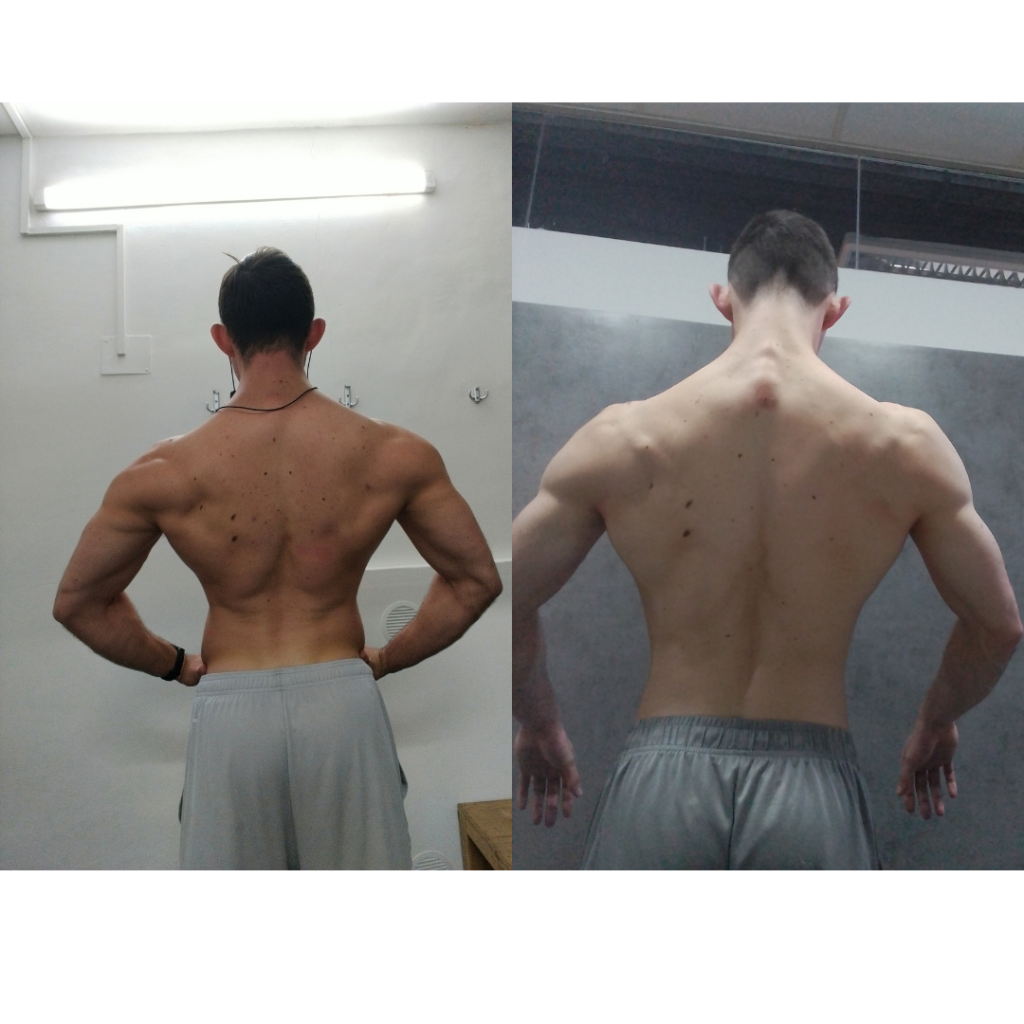
The clean bulk meal plan! In this article I will be giving you advice and tips to gain muscle the right way. Before we delve further into the article I should say..welcome back and happy new year! I wish you all a lot of success during the upcoming year, not only success with your clean bulk meal plan! I know a lot of you will be looking to achieve some fitness goals starting around now. In my last article https://www.theavgguysnutritionandexerciseguide.org/nutrition/best-diet-meals/ I covered the best diet meals you can use to lose weight. Today we will be going over the best ways to clean bulk together with a clean bulk meal plan. So you can look good in that shirt, get eyes from all the gym goers at your gym and most importantly pack on more muscle!
My top 8 tips for clean bulking
- Clean bulk in a calorie surplus.
2. Clean bulk with more protein.
3. Clean bulking basics: Track your weight to gain more weight!
4. Clean bulk with liquids.
5. Clean bulking tip 101: Eat calorie dense foods.
6. Clean bulking essential: Eat more meals!
7. Clean bulk meal plan made easy with snacks.
8. When the going gets tough while clean bulking: Eat less fruit and vegetables.
9. Sleep more for more muscle!
10. Supplements within a clean bulk meal plan.
11. Example of a clean bulk day of eating.
1. Clean bulk in a calorie surplus
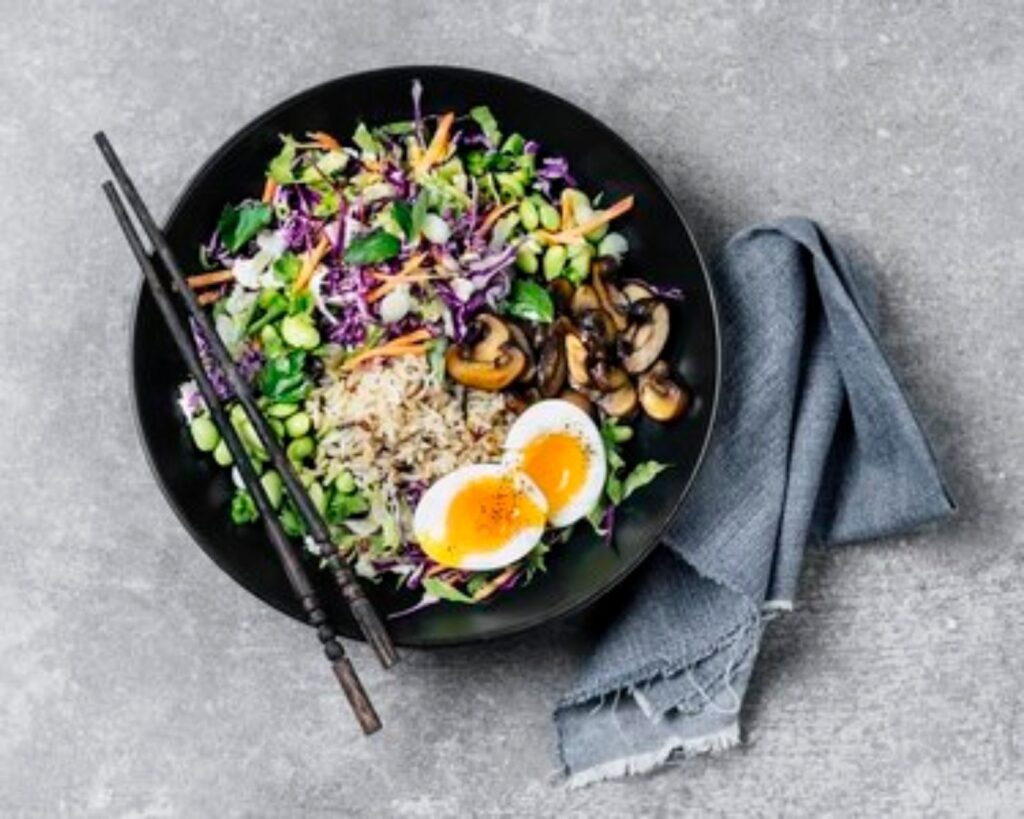
This one is the most important point of this whole article, so listen up good everyone! Just like when wanting to lose weight we need to place ourselves in a calorie deficit, while looking to gain muscle mass we need to place ourselves in a calorie surplus.
What is a calorie surplus and why do we need it?
A calorie surplus in layman’s terms means eating more food than our body needs to fuel itself and keep all of our body’s processes running smoothly, basically eating more food than we need to. Being in a calorie surplus in and of itself without a proper resistance training program is not what you want to do unless you wish to gain extra fat. Then you’re just Homer Simpson with a clean bulk meal plan… without the exercise part. Alright then moving on…
A calorie surplus and a resistance training program.
But coupled with a resistance training program that includes weekly progressions, these two things provide us with the foundation to build more muscle mass. Without a surplus in calories, we are just maintaining our body weight (and not gaining more muscle) which is not optimal for intermediate lifters (people who have been training in the gym for 1-2 years) who wish to gain muscle mass. After the beginner stages of training, muscle, and strength are going to be harder to acquire as we see diminishing returns the longer we train.
Like a well oiled machine.
Take for example when you are a beginner lifter. Your lifting heavier weight each week, your gaining muscle really quickly and your recovering easily. Everything is on easy mode! Like being at a sushi buffet and the food keeps coming to you on the sushi train. You just sit there and eat! But as we rack up more years training we don’t see the same progress and so we need to train smarter, eat smarter and recover smarter to see the same results. As a beginner you don’t need to worry about eating in a surplus as much. The muscle and strength will just come.
Time to grow.
Weight training is a new stimulus your body is not used to. Just like with building muscle, taking part in your first marathon your slow, out of breath and maybe not where you would like to be! After a while you get better, then overtime your really good and now you need to pay more attention to everything related to training and your lifestyle to continue to see results. It’s the same with building muscle as an intermediate and advanced lifter. You need to be in a surplus to build muscle.
No hiding all of you “hard gainers”.
When I say a calorie surplus, I mean a slight calorie surplus. We are on the lean bulk meal plan. We are not suddenly consuming all the food we can see in front of us hoping we will be Ronnie Coleman (bodybuilding legend!). I’m thinking an extra 200-300kcal over your maintenance calories. Then as we gain more weight and our metabolism adapts we need to add another few hundred calories or so. Some of you may label yourself as “hard gainers” or you just don’t gain weight easily. You have a high metabolism that is all. If you consume the right foods you will be able to place yourself in a calorie surplus and gain weight too. Your baseline maintenance calories are just higher than some other people. Some people wish they had your genetics. Don’t make excuses. Find ways to achieve the goal.
2. Clean bulk with more protein.
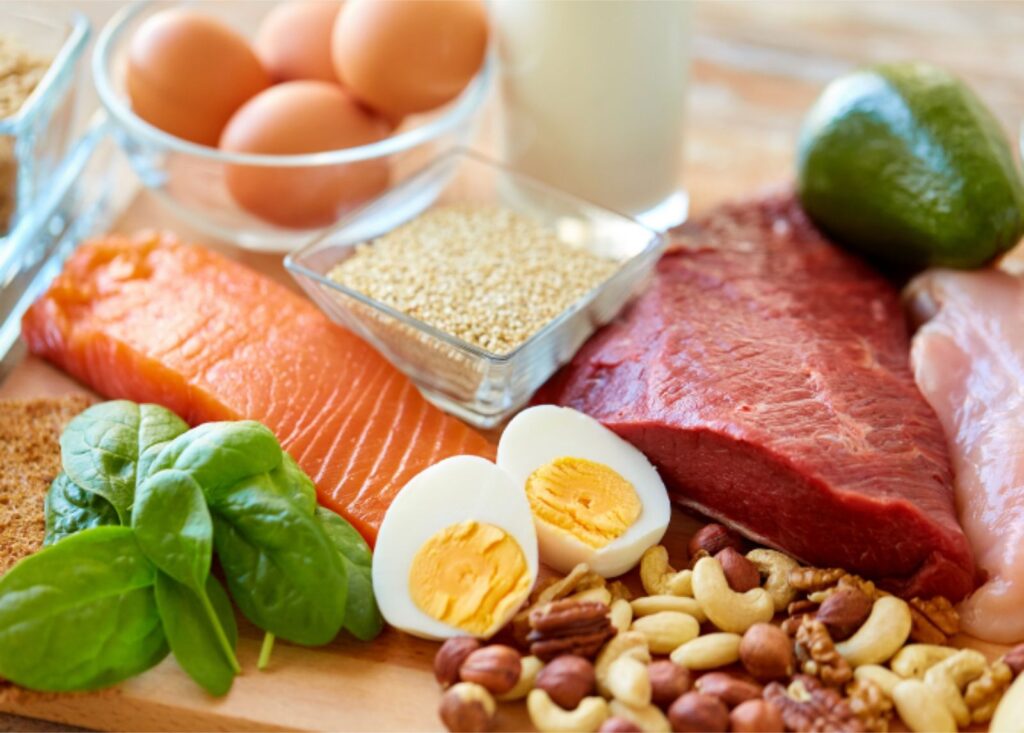
So you have probably heard that you need more protein to build muscle and this is 100% true. Protein and a surplus of calories help our body to recover and “grow stronger” after resistance training, which is the stimulus. Now your probably asking yourself how much protein should I consume to build muscle on this clean bulk meal plan? Well that depends. In https://barbend.com/layne-norton-supplements-macronutrients/ Layne Norton, a respected powerlifter and holding a PHD in Nutritional sciences says 2 to 2.4g of protein per pound of lean body mass while in a gaining phase is ideal. While dieting, he recommends anywhere from 2.4 to 3g. Brad Schoenfeld and Alan Aragon recommend in https://www.ncbi.nlm.nih.gov/pmc/articles/PMC5828430/ 1.6g of protein for maximized muscle gains and not while dieting. While Bandegan et al recommend 2.2 grams of protein per pound of lean body mass, though this finding has not been widely supported by other scholars in the field. This is quite a large range so no one answer fits all.
Protein protein and more protein.
Norton’s suggestion of up to 3g of protein while dieting does make sense as while dieting the body will look to use any source of energy it can find as energy is at a premium because of reduced calories being consumed. Muscle will be used as energy if there are no other readily available sources of energy. We need to consume extra protein to tell our bodies to hold onto the muscle we currently have. While building muscle consuming such high quantities of protein may not be needed but keeping it relatively high will help give us the raw building blocks needed to build extra muscle tissue. I personally recommend at least 1g per pound of body weight.
Eat protein frequently for gains baby.
It has also been noted that consuming protein in even amounts of 20-25g throughout the day leads to increased protein synthesis. Meaning the protein we consume will be absorbed and used to build muscle instead of being wasted. Scholars recommend having at least 4 feeding windows/ times where we consume protein throughout the day. Protein should be consumed along with a carbohydrate source and each meal consumed 3-4 hours apart for optimized protein absorption.
Where can I find more protein?
Now we know the daily protein consumption guidelines, which foods will help me hit those targets? We can find protein in meats, dairy products, protein powders, eggs, legumes, beans, nuts, seeds in wholewheat food products such as pasta and we can even combine 2 foods or incomplete protein sources together to create a complete protein source.
We can split protein sources into 2 groups:
- Complete protein sources
2. Incomplete protein sources
1. Complete protein sources
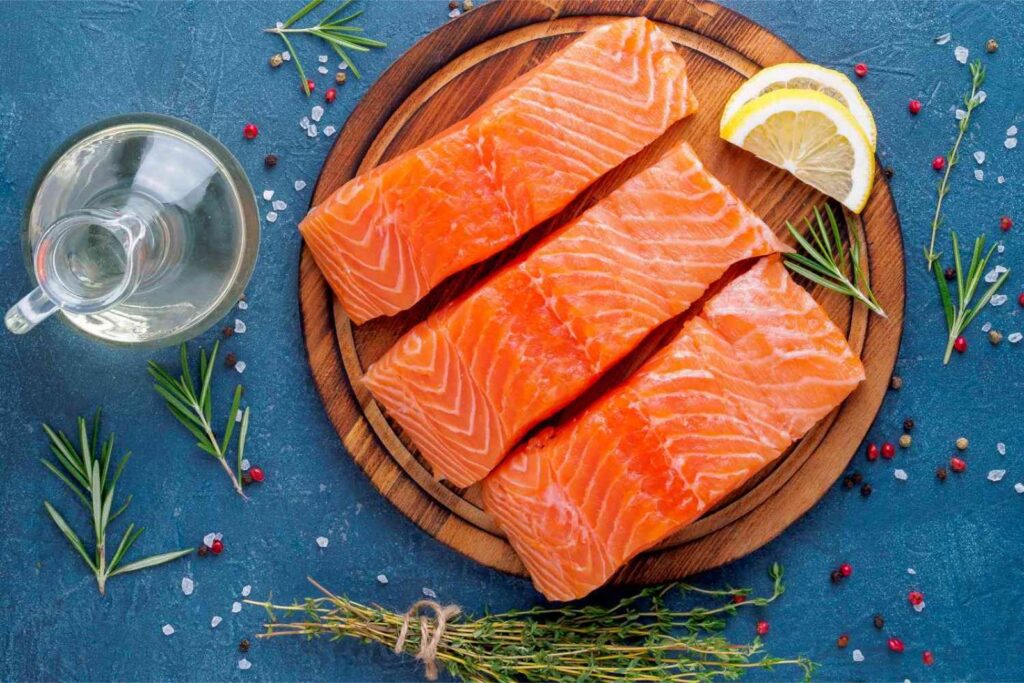
Complete protein sources are foods that contain a full amino acid profile or all 9 amino acids. We get all of the amino acids needed to build new muscle tissue. Examples of these foods include protein powders (which are generally pure protein derived from milk or eggs), meat such as chicken, beef, lamb and pork. Eggs and dairy products such as cottage cheese, Greek yogurt and milk. These should make up the bulk of your protein consumption throughout the day.
2. Incomplete protein sources
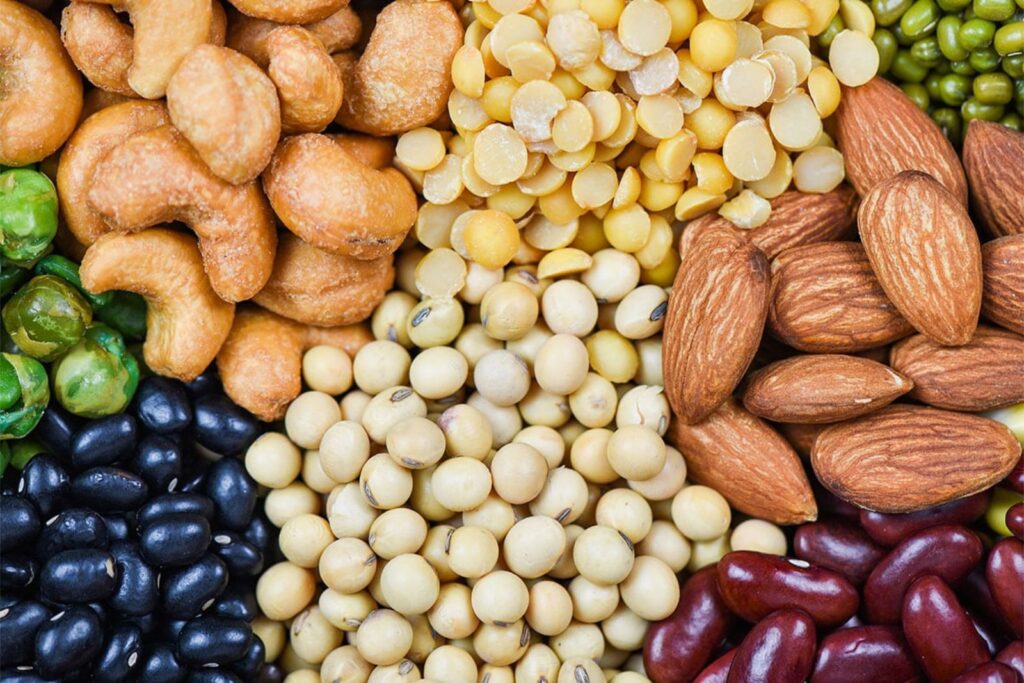
Sometimes we may prefer to eat other foods compared to the examples mentioned above, we are vegan or don’t have them at hand. Our other options are incomplete protein sources. These are foods that do not contain all 9 essential amino acids needed for muscle growth but rather a few of them. Examples include legumes such has lentils. Beans like black beans and kidney beans and even wholewheat rice and pasta.
As these foods are not complete sources of protein they must be combined with another protein source to make up all 9 amino acids. For example, this could be wholewheat bread and beans. Or brown rice with black beans. Once combined both foods make up all 9 essential amino acids, they are just as useful as complete protein sources. So you decide which one you want to consume!
What is the best protein to consume for lean bulking?
Well there is no “best” protein source as such but there are protein sources that may make it that little bit easier to achieve our goal of increased muscle mass. As we know we need to be in a calorie surplus to build new muscle tissue once past the beginner stage it can make sense to consume “higher calorie protein sources” to reach our daily calorie target. If we take chicken which contains 106kcal and 24g of protein and striploin steak which contains 201kcal and 21.6g of protein. We see the striploin steak contains more calories and about the same amount of protein. When we are struggling to consume enough calories we can eat higher-calorie foods to hit our calorie target and place ourselves in a surplus. This includes higher-calorie protein sources.
The next point, though not as important for beginners is geared more towards intermediate to advanced trainers. There are times when consuming a certain type of protein makes more sense. Take for example before and after training. Before training you want to consume food that contains lots of carbohydrates to fuel exercise, a little protein for optimal protein synthesis and minimal to no fat so the absorption of the carbs and protein takes minimal time. After training, our bodies are craving nutrients to “repair” the damage induced by resistance training. Here we want to keep fat low too to speed up the absorption of key nutrients and eat as soon as possible after training too. Ideal protein sources for pre and post training could be protein powders, egg whites or another lean protein source.
3. Bulking Basics: Track your weight to gain more weight!
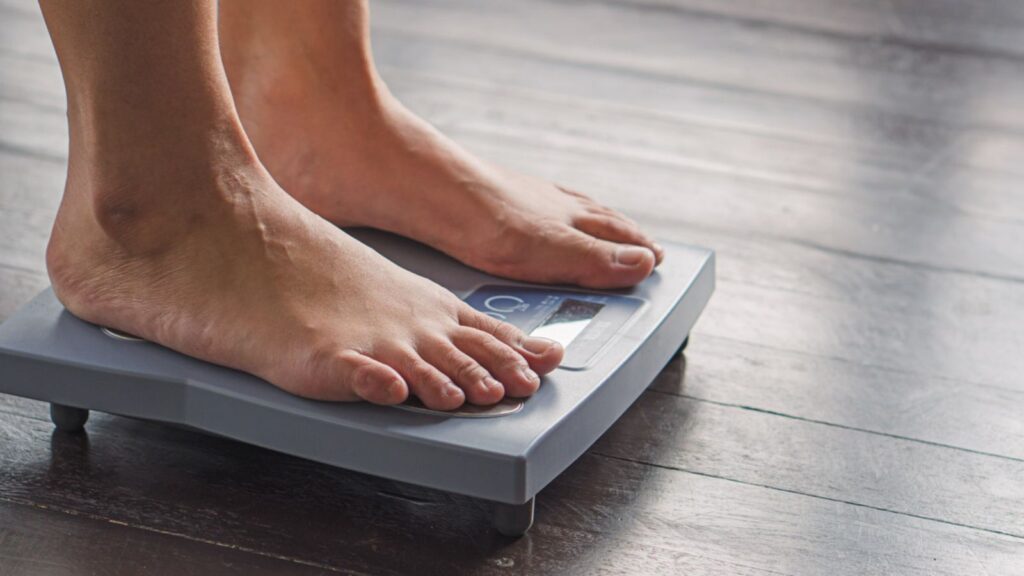
Just like while dieting, we want to track our weight while lean bulking to monitor changes in body weight and adjust accordingly. We want to see a slight increase in body weight each week. Before we can do that accurately, we need to find our maintenance calories. If your unsure on how to do that check out my last article where I explain how to do so https://www.theavgguysnutritionandexerciseguide.org/nutrition/best-weight-loss-tips/ . Once we know our maintenance calories we will look to gain weight each week. A part of this will be muscle if we are training right and with a resistance training program tailored for muscle building. A little bit of of weight gain will be fat. We want to keep fat gain to a minimum as it is not a desirable outcome..who ever has said “I want to be more jacked but fatter”. No one!
What the research says.
Scholar’s recommend gaining between 0.5ibs – 1ibs per week. This could look like an extra 200kcal each week depending on the metabolic rate of the person. Look to gain both body weight and weight on the bar for a few weeks to months where we will be eating in a slight calorie surplus. Afterwards once we have gained a good amount of weight and hopefully a good amount of that is muscle mass (Mike Isratel from Renaissance Periodization recommends gaining about 10% of our body weight during a gaining phase.) we will enter into a phase of reduced calories or a fat loss phase to lose the fat we have gained but hold onto our newly added muscle.
4. Clean bulk with liquids.
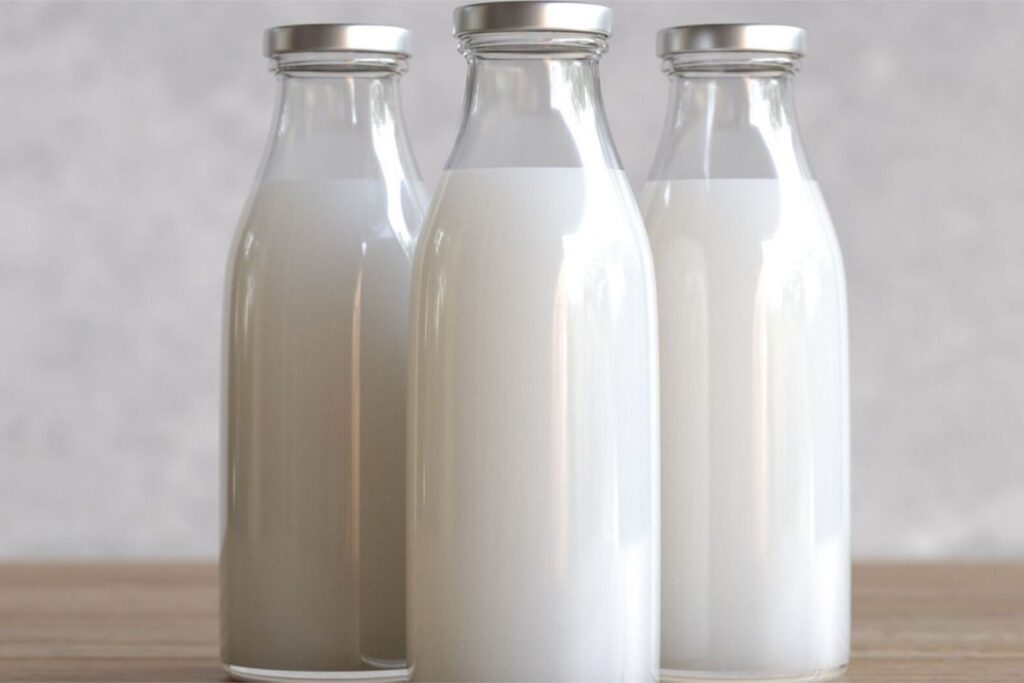
This is a great tactic that works really well if eating food is becoming difficult while lean bulking or you just don’t like to eat a lot of food. Liquids are going to be generally easier to consume in higher quantities. You just need to chug that bottle of milk bro! Some liquids are also very calorie dense making it even easier to hit our calorie target. I’m thinking of full fat milk, chocolate milk, weight gainer shakes whether that’s your own homemade ones or from a sports nutritional company.
Shakes for more dates.
One of my favorite weight gainer shakes to make includes full fat milk, peanut butter, honey, oats and a banana. That can add up to well over 1000kcal really quickly! Liquids like isotonic drinks or fruit juice can also be consumed during training to enhance our performance and this is another great time to consume extra calories. Fruit juices are a great way to bump up your calorie intake with a liter of fruit juice easily containing 1000kcal. They take no effort at all to consume and can be easily consumed during training to enhance our performance in the gym.
5. Bulking tip 101: Eat calorie dense foods.
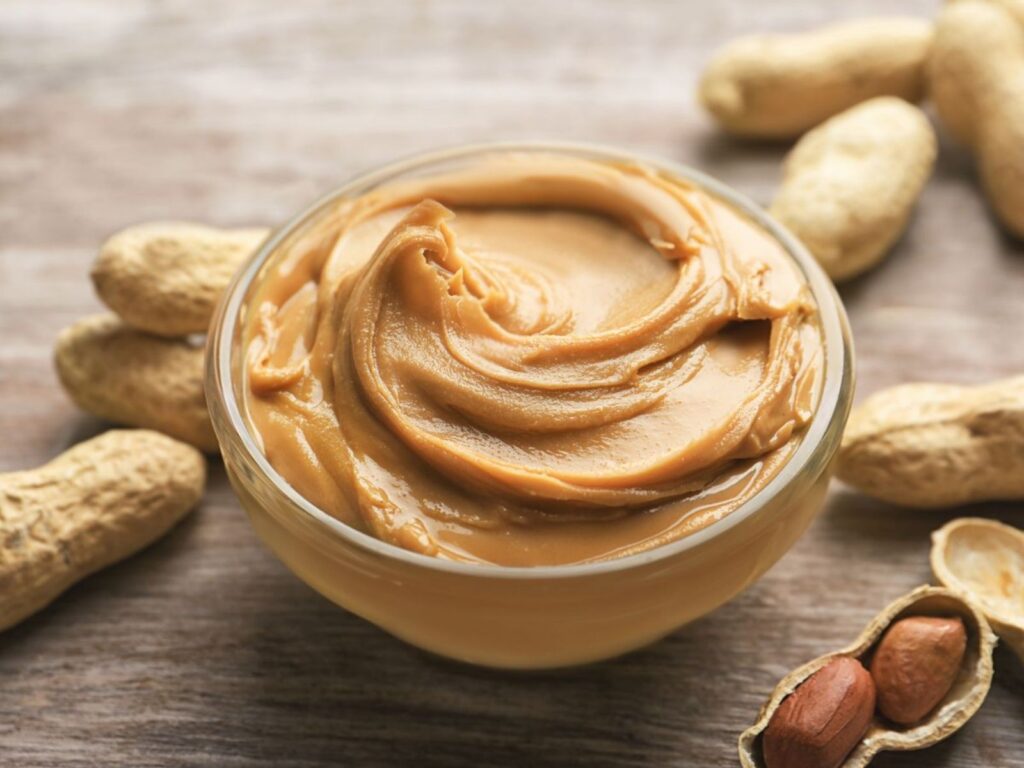
Pretty self explanatory! If you want to make lean bulking easier consume higher calorie foods. Now I’m not thinking about burgers, fries and ice cream everyday. (Though these can be used strategically when we need to hit a really high calorie target for the day and we all like to eat ice cream now and again!). We are humans and not robots! Great food options here are jasmine rice, noodles, brown rice, wholewheat pasta, muesli, banana’s and avocados. Notice these foods are not “unhealthy”, they all contain an abundance of nutrients and vitamins.
All foods are not created equal.
But all of these foods are calorie dense making it easier to consume extra calories. That means that you can easily consume enough calories to increase your weight instead of eating something like lettuce where you would need to eat bags of it to reach the same amount of calories consumed with peanut butter for example.. Remember it’s energy in versus energy out at the end of the day. It doesn’t matter if the food is deemed “healthy” or “unhealthy” if we eat more calories than what are body needs then we will gain weight. The difference is that eating nutrient dense food will aid recovery much better and we can train harder.
Which side to choose?
I have mentioned brown rice and wholewheat pasta here. They are great options but as you know there are also the refined versions such as white rice and white pasta. The difference being in the wholewheat versions they contain gem and bran which are taken out of the white versions. I would choose to eat the wholewheat versions over the white versions as they contain more fiber, vitamins and minerals which is always better for health But! For the very fact that they have more fiber it could make it a little bit harder to consume large amounts of these foods especially when we are already eating a lot of food. That’s where the refined versions come in handy. They are easier to eat and digest as the bran as been taken out making it easier to eat them in larger quantities. So make an educated decision and choose the one that will make it easier to achieve your goal. In some cases such as up to 1 hour before training and afterward consuming simple carbohydrates like white rice means the carbohydrates are stored quickly. Ready to be used for training. Our bodies are highly insulin-sensitive after training too so eating white rice means we shuttle those carbohydrates into the muscles quicker which is very anabolic equaling more muscle gains.
Some of my go to high calorie foods while lean bulking are:
Carbohydrate sources:
- Brown/white rice.
- Wholewheat/white pasta.
- Noodles
- White/Sweet potatoes.
- Quinoa.
- Wholegrain breads with nuts and seeds.
- Muesli.
- Cereals.
- Dates
- Raisins
- Prunes.
- Mango’s.
Protein Sources:
- Beef.
- Striploin steak.
- Lamb.
- Pork.
- Eggs.
- Weight gainer shakes.
- Salmon.
- Protein bars.
- Beans and legumes.
- Cheese.
- Full fat milk.
Fat sources:
- Avocados.
- Olive oil.
- Nuts.
- Dark chocolate.
6. Clean bulking essential: Eat more meals!
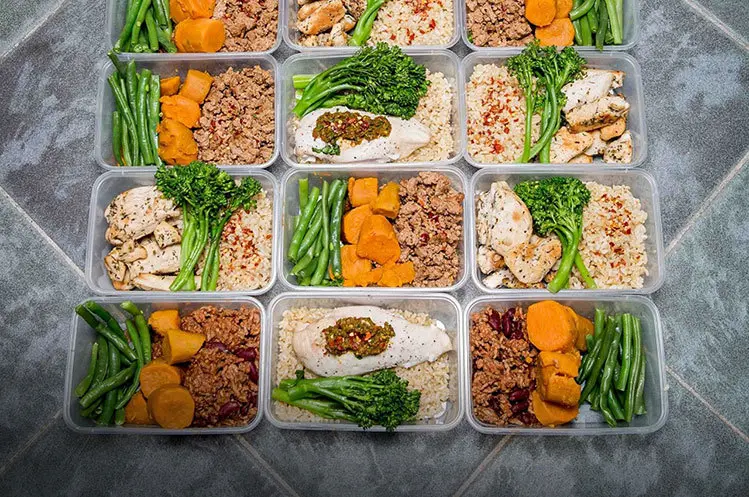
One difficulty you may run into while lean bulking is after a while your appetite is not very big and the desire to eat food is no longer there. Or maybe your not like me and just don’t eat a lot of food. Please tell me your secrets… At the end of the day total calories consumed during the day is the most important factor. It doesn’t matter so much for beginners if you eat 3 meals a day or 6 meals a day. That is something for intermediate lifters to think about.
5 meals are better than 1.
But eating more meals is one way to consume a higher amount of total daily calories. For this reason it works well while gaining when we just don’t have the desire to eat anymore. This is very common when we are past the first few weeks of our clean bulk meal plan and our appetite is no longer there but we need to increase our calories to see further increases in body weight. One thing I like to do is get up reasonably early so I have more time in the day to consume extra calories if needed. It should be noted that your biggest meals should be your pre and post-workout meals, the first to fuel your training and the former to recover and adapt from training. Usually, we will be quite a bit more hungry after training, so this is a great time to consume extra calories. It’s go time baby!
7. Clean bulk meal plan made easy with snacks.
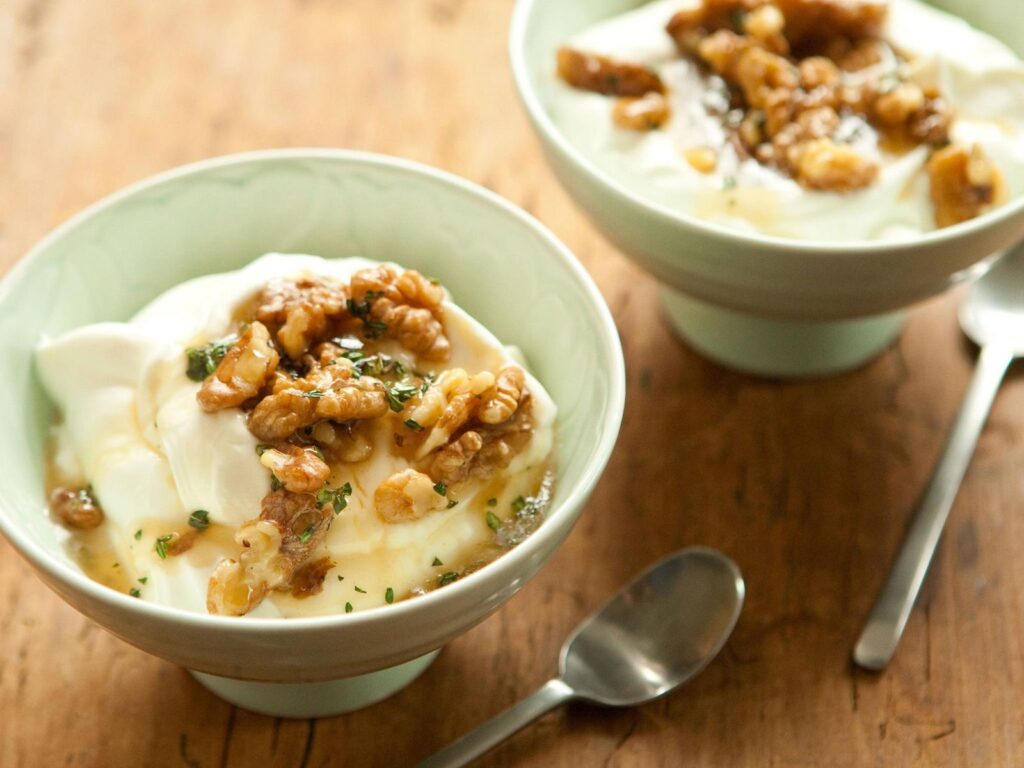
This is a really great way to sneak in some extra calories while lean bulking. We all have those times when we are not working, maybe we are just chatting with friends, watching the TV, or reading a book. These moments are good times to sneak in some extra calories if consuming all of your calories with meals is challenging. When I say snacks I don’t mean crisps, chocolate, and biscuits all the time. A few here and there are fine. We are lean bulking but that doesn’t mean we forget about the nutritional quality of the foods we are consuming either. Healthy foods will always be better for our bodies than highly processed foods with lots of artificial ingredients. Some snacks I like to consume are:
- Nuts, like peanuts, walnuts and pistachios.
- Trail mixes containing lots of dried fruits.
- Banana’s.
- Smoothies.
- Full fat Greek yogurt with honey.
- Protein bars.
- Weight gainer shakes.
- Nut butters like peanut butter.
- Oat and granola bars.
All of the above foods are high in nutrients and vitamins as well as being calorie dense. Perfect for clean bulking! I didn’t mention typical snacks some of you may be thinking about. Such as ice-cream, biscuits, crisps and chocolate. There is nothing wrong with consuming these now and again if you like to eat them. It gives us a mental boost if anything.While lean bulking this is the perfect time to consume them. Just be careful with how much of them you eat making sure you stick to your calorie target.
Homer Simpson? Not today sir.
Just make sure your daily food intake is largely from whole, nutrient rich foods. We don’t want to become addicted to highly processed foods and then suddenly the lean bulk turns into an episode of the Simpsons where Homer can’t get enough doughnuts and leaves nothing but doughnut boxes in his wake. We are also trying to instill healthy eating habits so when the time comes to shed the fat we have gained after lean bulking, it won’t be such a insurmountable task to go without these highly palatable, tasty foods.
8. When the going gets tough while clean bulking: Eat less fruit and vegetables.
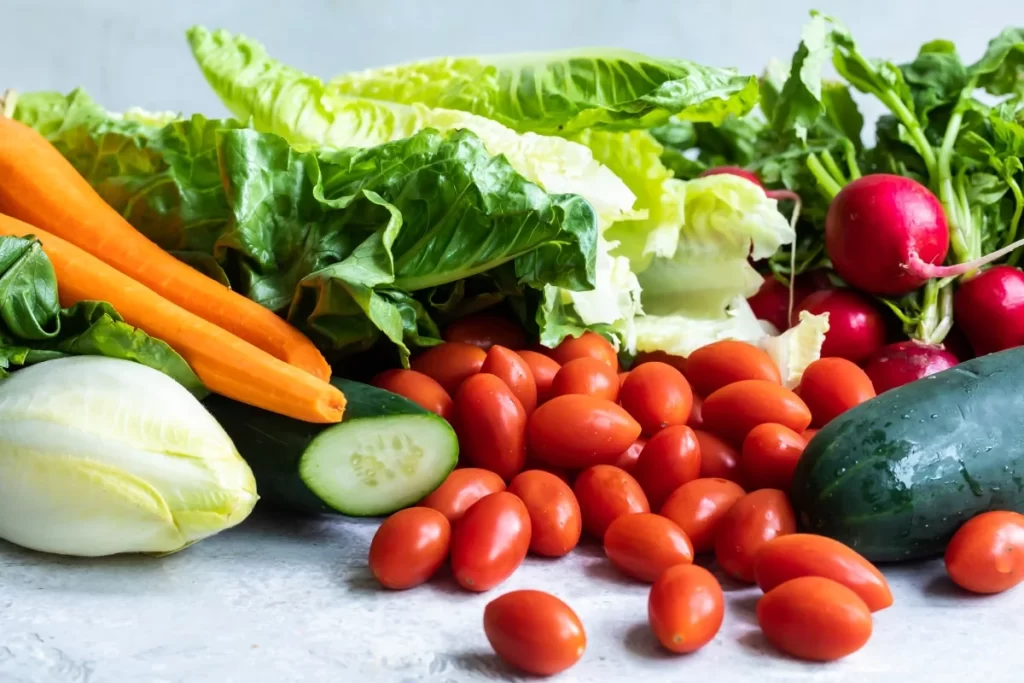
Yep you heard me right. Seems counterintuitive right? I thought fruit and vegetables will lead to more gains while lean bulking? Well actually you would be right. Eating fruit and vegetables each day should be a no brainer as they contain a lot of vitamins, minerals and antioxidants which will help keep us healthy, we won’t get sick as easy and we recover quicker from exercise.
Fruit and vegetables are for winners.
Though fruit and vegetables are also not very calorific meaning we can eat a large quantity of them without consuming a lot of calories. This is great if you are trying to lose weight, but while clean bulking we want to place ourselves in a calorie surplus and stay there. When your calorie target each day starts to increase you will have to eat more food to hit it and eating a lot of fruit and vegetables may make it harder for you to hit your calorie target. Now I’m not saying don’t eat fruit and vegetables full stop. Remember they are essential for recovery, health and performance. Just reduce your fruit and vegetable intake slightly and increase your processed carbohydrate intake.
A plan is always better.
But what I am saying is maybe be more strategic when you consume them or the types of fruit and vegetables you consume. Consume more calorific fruit and vegetables such as avocados, bananas and mangoes. If you are struggling to hit your calorie target you may need to reduce your fruit and vegetable intake quite a bit and switch to taking multivitamin supplements freeing up more space for calorific foods. Be your own guide and notice when you are starting to struggle to consume enough food. That might be the time to reduce fruit and vegetable intake for more clean bulking progress!
9. Sleep more for more muscle!

Sleep is so important for everything in life. It is the foundation or springboard for anything productive or positive you are about to do. I know when I don’t get a good night’s sleep I’m not as productive the next day, I’m crankier, less enthusiastic for work, my willpower is going to be tested more. I just don’t feel as “productive” and “ready”. When it comes to clean bulking, nutrition is one part, recovery is another part and then we have the training. During training we need to apply progressive overload in other words, improve in some way compared to last week. An extra rep, an extra set or more weight. In order to do this we need to recover from exercise and be in a productive state to train. Your not going to lift heavier weight with 5 hours of sleep consistently.
Too much stress is not what the doctor ordered
Another thing to keep in mind is that when we are sleep deprived we have a higher level of stress hormones present. This can cause us to make poor decisions during the day such as over-consuming on the wrong type of foods. Foods that contain a lot of fat, salt or sugar. Highly palatable foods. This is just our body sensing stress and so it wants to protect us from tough times that may be around the corner. So we over-consume food to “prepare” ourselves for imminent times of hardship or times of hardship and difficulty. Remember our ancestors would travel long distances without the guarantee of food or safety. Our body is just doing what it does best.. keeping us safe. This is its first priority.
Not quite Charlie and the chocolate factory.
If we continually over-consume on food in these dramatic episodes of eating everything in sight like a scene from Charlie and the chocolate factory what we will see is a sub-optimal muscle to fat gain ratio. We are going to see more fat and we will gain it quicker. This means less time spend lean bulking, we become fatter and we only need to shed this fat afterwards. We can only build so much muscle at a time. Eating more food, only adds more fat where you end up looking more like Peter Griffin from Family Guy versus jacked dude/dudette.
10. Supplements within a clean bulk meal plan.
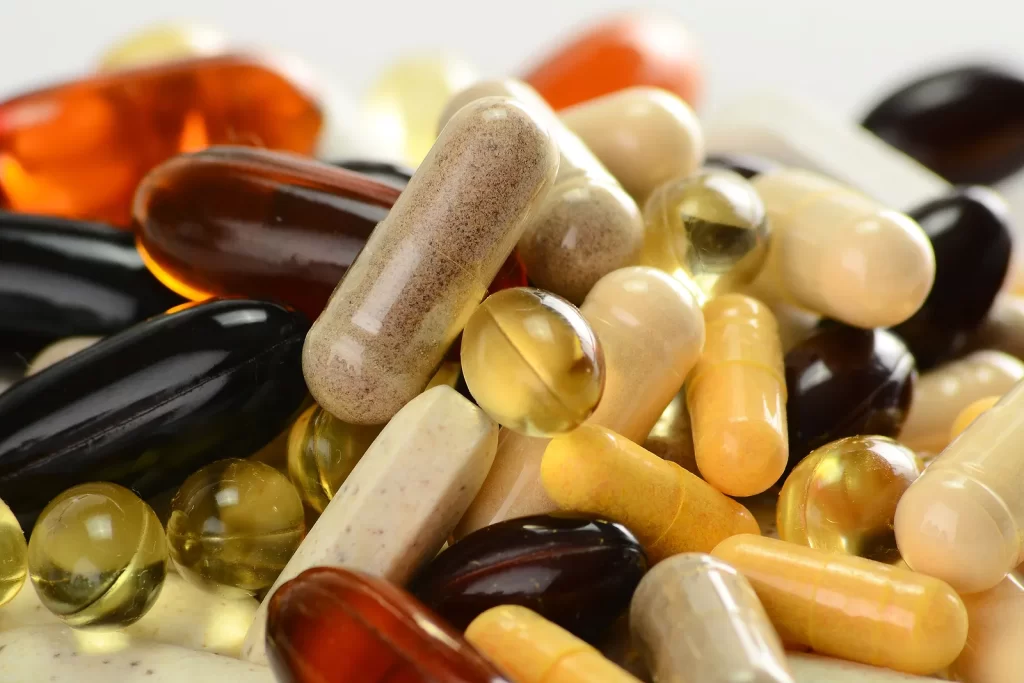
One very common belief among beginners to the gym is that taking supplements is going to “pack on so much muscle bro”. They place supplements higher up on the pyramid of importance than what they really deserve. Remember while clean bulking, the main factors that will influence your results will be:
- A structured training program with weekly progressions.
- A diet that supports your goal of clean bulking.
- Adequate recovery from exercise.
- Being consistent with these things for months to years to see long lasting results.
These points are the foundation of progress while lean bulking. Supplements come after these. They are meant to “supplement” your diet and your training. They will make a few % of a difference. You won’t turn into Mr Olympia from taking supplements for years. Now that we know that supplements are not going to be a deal breaker, they can have benefits. Some supplements are certainly better than others for lean bulking goals. Some supplements you could include are:
Protein Powder.
This is a great one to use while clean bulking if your struggling to fit in enough protein into your diet. Protein can be found in foods and we only have to eat foods to acquire enough protein if we need to. I’m thinking of eggs, meat, milk and fish. Protein powder can just be a more convenient way to consume more protein. We all live busy lives. Sometimes we don’t have enough time to cook and prepare foods. Then it makes sense to add some protein powder into our diet here and there. It shouldn’t be the source of ALL of your protein but a portion yes.
So many options, which one to choose?
Protein powders can also come in a lot of different flavors which actually taste quite good and can be added to meals like porridge or smoothies. I like https://www.myprotein.ie/ which has a great selection of flavors which feel like your eating some kind of high protein dessert!
Mass gainer.
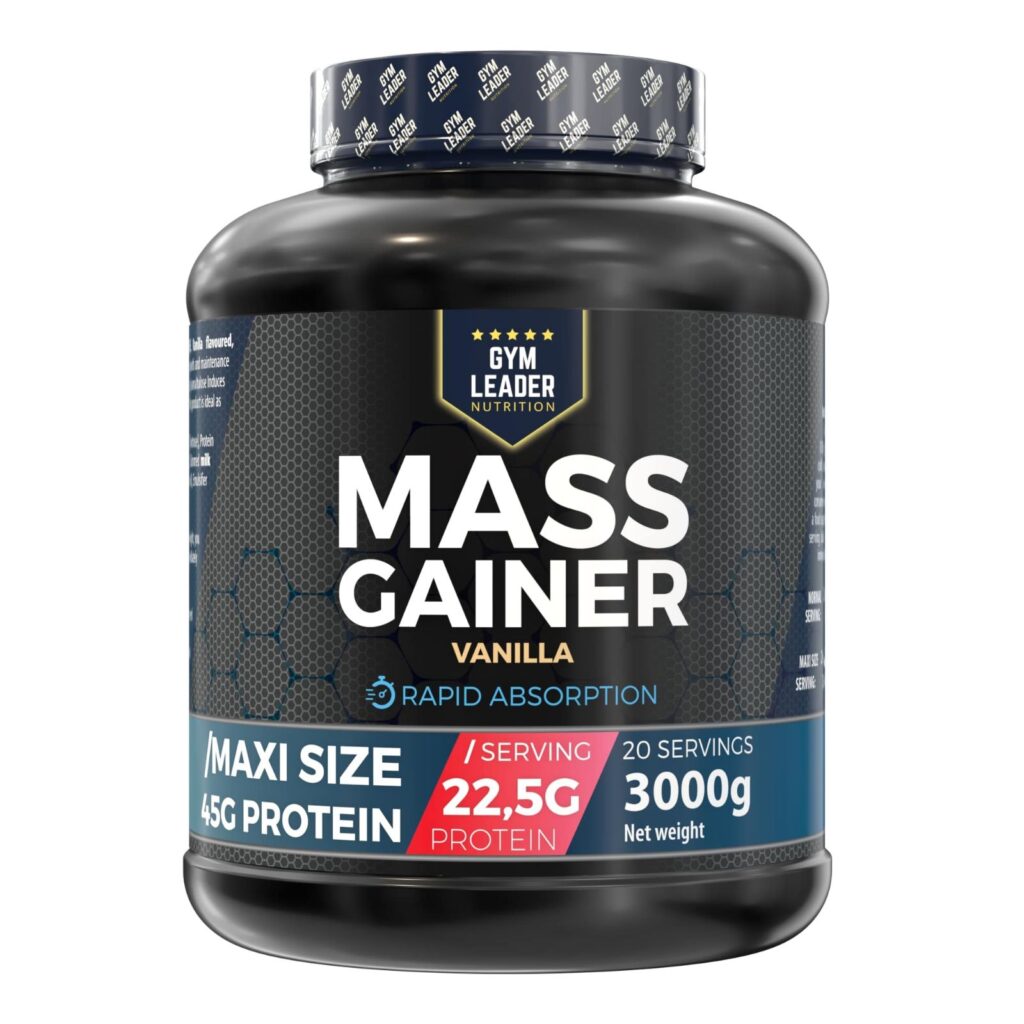
Mass gainers or weight gainers can be useful when we need to hit a certain calorie target and consuming enough food is becoming challenging. Mass gainers usually contain some protein, carbohydrates and in some cases added vitamins, minerals and creatine. I have rarely used weight gainers while lean bulking as I can consume enough calories just from consuming natural food sources. I personally prefer homemade weight gainer shakes over the ones made by sports nutrition companies. But take for example Tom, who is a typical “hard gainer” and needs to eat a large amount of calories to place himself in a surplus while lean bulking. Supplementing with a weight gainer will help him greatly.
Carbohydrate powders.
Carbohydrate powders like protein powders with protein are just a more convenient way for us to ingest more carbohydrates. They can be useful when added to shakes to increase both the carbohydrate and calorie content. They can be ingested before training to fuel ourselves for a productive training session or after training to initiate the recovery process. They can be ingested before bed if your feeling like liquids are an easier way to get in your calories instead of food. Bottom line, use them if you like them and you feel they help you to improve your progress while lean bulking.
Multivitamins and fish oils
These are handy when we need extra vitamins, minerals or omegas in our diet if we don’t get enough of these from foods. Maybe you have consciously taken the decision to eat less fruit and vegetables to make it easier to hit your calorie target. Then it makes sense to consume a multivitamin supplement so we still hit all of our vitamin and mineral requirements for the day. As for fish oils these can be useful if you don’t eat a lot of fish in your diet. Our body doesn’t produce a lot of it’s own fatty omega 3′ acids’ so a fish oil supplement could come in handy here.
Creatine Monohydrate
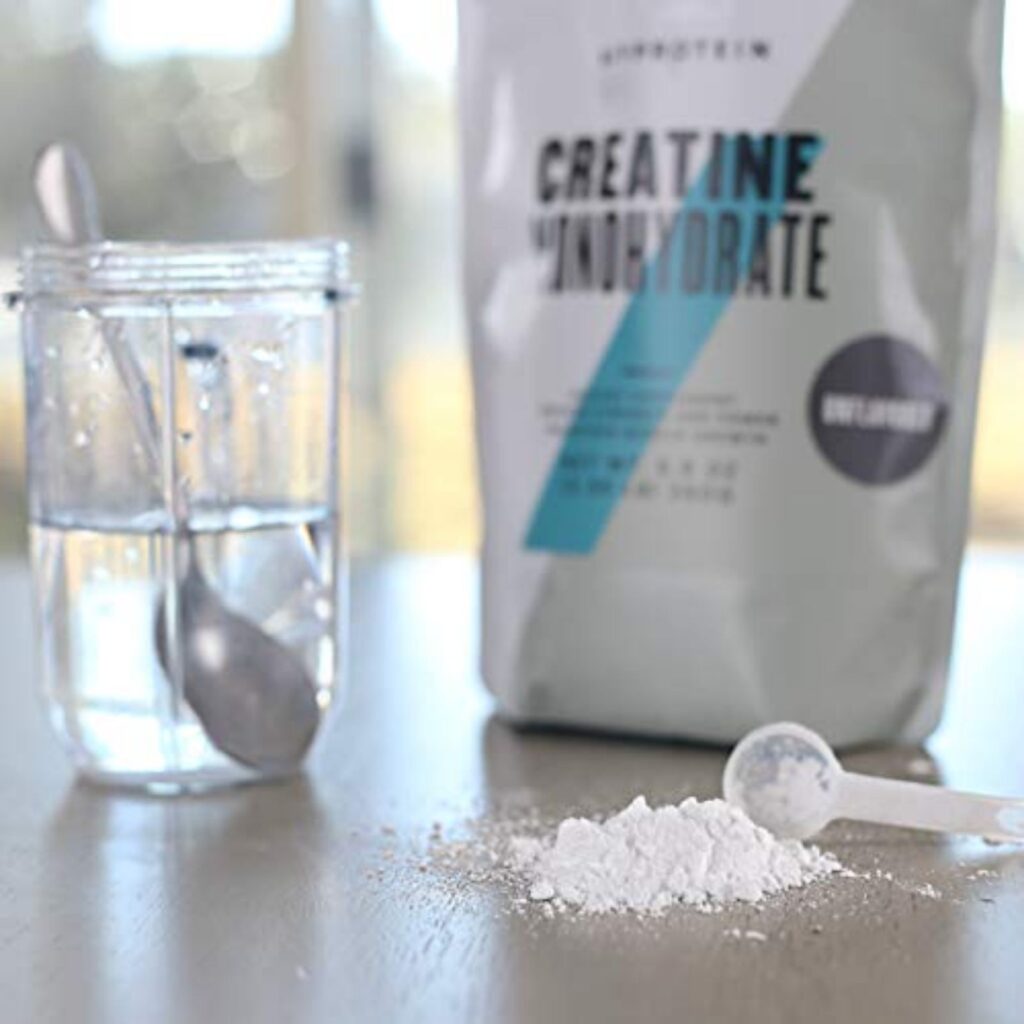
This supplement can really help while lean bulking but it is by no means a “must have”. What exactly is creatine monohydrate? Well creatine is a natural source of energy that helps our skeletal muscles contract while exercising or is used by our heart and brain. Actually half of our source of creatine comes from foods such as beef and milk. Which both contain creatine. The other half is produced by our liver, kidneys and pancreas. If we don’t consume enough creatine rich foods, then including a creatine supplement will supply us with more creatine.
Back to science class.
As well as providing us with more energy for exercise creatine helps to speed up the recovery process by activating satellite cells which help micro-tears heal after exercise. Creatine increases the amount of anabolic hormones in our bodies which aids recovery. Creatine also allows for improved cell hydration which prevents muscle cramps. Some people think that creatine is some kind of wonder supplement or even an anabolic steroid that will dramatically increase strength and muscle mass. We have all heard the gym or dressing room chats among younger fitness enthusiasts who hold this belief.
Did someone say steroids?
Though not a steroid, creatine can potentially increase power, the amount of exercise we can perform and number of repetitions which can lead to increased muscle performance and muscle hypertrophy over a training cycle. As mentioned in https://jissn.biomedcentral.com/articles/10.1186/s12970-021-00412-w#Sec14. Another common effect you will see while taking creatine is that your muscles “swell” as they are holding more water giving the appearance of increased muscle mass. Bottom line use it for marginal improvements in power, strength and output and your happy with the results. The results won’t be extremely noticeable. Maybe you will add 2.5kg to your bench press or 5kg to your squat.
Relaxation or sleep aids
These supplements are probably not something a lot of people think of but can be useful for some of us. Remember increasing muscle mass and strength while lean bulking, one side of the coin is the training the other part is the recovery. If you recover better you will perform better leading to better results via progressive overload over time. I have used sleep aids such as lavender or mandarin oils or something as simple as a relaxing cup of chamomile tea in the evening. I have noticed I am more relaxed and get a better sleep so I continue to use them. For some people maybe you won’t see any difference. Or you don’t like the price tag which comes with a lot of these relaxation oils. That’s fine, don’t use them. Find something that works for you.
11. Example clean bulking day of eating.
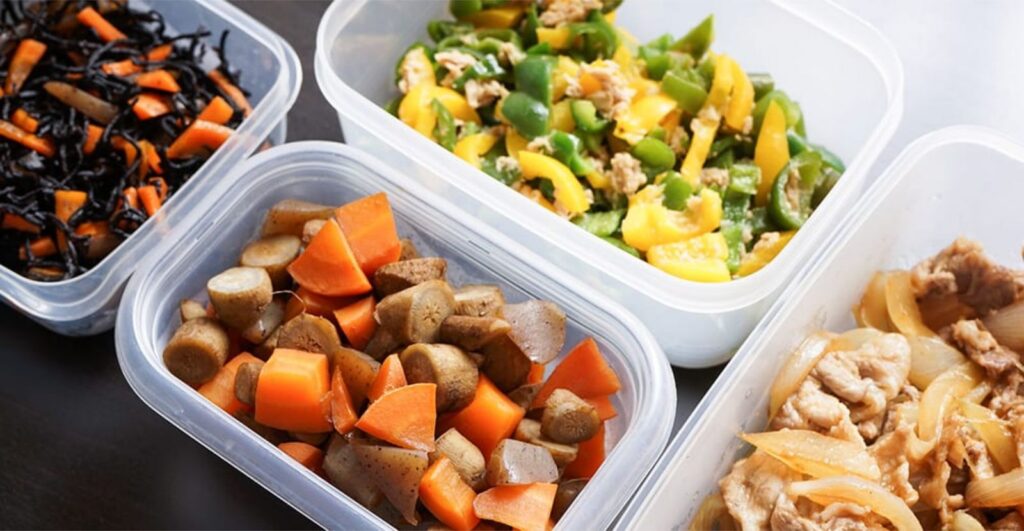
Alright now that you know a little bit more knowledge about clean bulking and should be coming from a better place to achieve better results I thought I would finish with an example day of eating while on this clean bulk meal plan to achieve the best results. So let’s get into it!
8am : You wake up and prepare yourself for the day. You start work at 9am so you need to eat something quick with protein to take yourself out of the overnight catabolic state. We are not close to starting training so this doesn’t have to be a particularly large meal and does not need to contain a lot of carbohydrate which will be better used either side of training to fuel and recover.
Meal 1
8am: 4 boiled eggs with 2 slices of toast and butter.
or
Bowl of porridge with honey and a protein shake.
Meal 2
11am: You have a break from work. For optimal protein synthesis we should ingest some protein here as well as some carbohydrate for proper protein absorption. If you have a lot of calories to consume we can include some extra carbohydrates or healthy fats to boost the calorie content of this meal.
Protein shake with a piece of fruit.
or
Chicken and garbanzo salad with olive oil dressing.
Meal 3
1pm: This is your last meal before training after your work/school day. We want this to be one of our biggest meals of the day with plenty of carbohydrates to fuel training and minimal fats so the energy from the carbohydrate are absorbed quicker by the body.
Wholewheat pasta with tomato sauce, aubergine and chicken breast.
or
White potatoes with chicken breast and a side salad.
Meal 4 :
In-session: During training consuming an isotonic drink, fruit juice or carbohydrate drink will supply us with fast acting carbohydrates which can be used to increase gym performance.
Meal 5
6pm: You have just finished training. Your body is craving food to start the recovery process after exercise. Within the first hour consume a source of protein, some carbohydrates and no fats. Within the first hour after training the body has increased insulin levels and blood flow making it a great time to consume foods to begin the recovery process.
Protein/mass gainer shake with white bread and jam.
or
Greek yogurt with honey. dates and a side of kinds cereal with low fat milk.
Meal 6
8pm: This may be your last meal of the day. You finished training a few hours and your start to feel hungry. In this meal we want to include some protein for protein synthesis, a carbohydrate source and if you want a fat source its fine here too as we are already one meal down after training and the recovery process has already begun. This is also a time when we like to relax after a day of being busy so enjoy your meal! Including a burger or pizza is alright too if your caloric budget allows it. We might include a casein-based protein source here too, which digests slower during the night so we are in an anabolic state for longer. If this meal is not your last meal of the night leave the casein shake for just before bedtime.
Striploin steak with sweet potatoes, beetroot and a sauce of your choice.
or
Homemade beef burger with tomatoes, lettece, cheese a sauce of your choice and homemade fries.

So there you go guys, that’s a typical day of eating while lean bulking. When lean bulking we have more food options as calorie needs are higher compared to when we are dieting. So have some fun with your food! For optimal results follow something similar to what I have written but remember total calories and adequate protein intake are the most important while lean bulking.
If you enjoyed this article and found it useful please feel free to share with your friends and family, sign up to my email newsletter and follow me on my social media channels for all of the latest updates. Happy lean bulking everyone!

